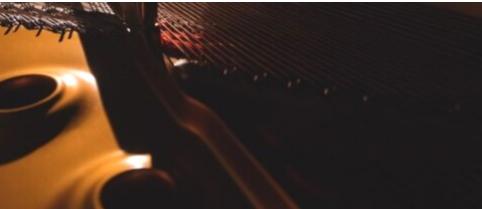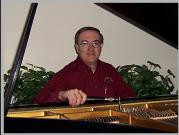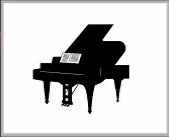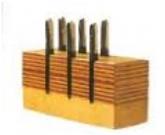How Often Should My Piano Be Tuned?
Pianos are under a tremendous amount of tension which needs to remain constant. If the tension fluctuates too greatly, the stresses become unequal throughout the piano and can cause costly damage. So, remember to have your piano tuned at least once or twice each year if moderately used, and more frequently for heavy or professional use. If being used for performance or recording purposes it is important to have your piano tuned before each event.
Contrary to popular belief, just because a piano is not played much does not mean that it will magically stay in tune. In fact, it won't hold it's tune just sitting there. Humidity and temperature are consistently flexing the soundboard, whether being played or not. Several seasons of not tuning a piano usually results in having to pretension the strings (sometimes called a "pitch-raise") before the piano can be fine tuned.
When Is the Best Time to Tune my Piano?
When choosing a time of year to have your piano tuned, some believe that fall and spring are the best times, being right after major seasonal changes. True, that is when the Relative Humidity is most ideal for a piano, at 43% or so. However, January and July are the best times if you want the longest period of time without major fluctuations, even though the humidity during those times are not always ideal. If your home or establishment maintains it's temperature and humidity rather well, or if your piano has a Dampp Chaser or similar humidity control system installed and functioning regularly, then this is not as much of an issue. While there is never a "perfect" time, it is always better to have your piano tuned than it is to wait and risk forgetting. Pitch adjustments are costly and hard on the piano! I would suggest that whatever time(s) you decide, that you stick with it. For increased tuning stability, consider having a Dampp Chaser System installed on your piano. Ask me, or your local piano tuner, about how a Dampp Chaser System could benefit your piano.
Help! My Piano Won't Stay in Tune!
The most obvious causes for a piano not to stay in tune are: 1) Humidity changes, 2) Extreme temperature changes, 3) agressive playing, 4) time, 5) deteriation of the pinblock, bridges, strings, soundboard, etc.
If your piano is quite old and won't hold a tune very long after a tuning (meaning...it begins sounding like a saloon piano within a short time after its been tune), there is a good chance it needs major work that may exceed the value of the instrument...sometimes by quite a lot. There are, however, some things that can be done for the occasional loose tuning pin, and pin treatments that can be done for multiple loose pins for pinblocks that that are marginal, but not totally "toast", so to speak. This may help squeeze a few more years life out of your piano, but typically this means that the time is nearing for you to begin considering your next instrument.
However, for pianos that are in realitively decent shape, there are some things that you can do to help your piano's tuning stability. First, try to maintain a constant relative humidity in the room as possible. Ideally, about 42% RH is the goal, but it doesn't need to be exact. In fact, it is not necessarily healthy for your home to try and maintain 42% at all times, especially when its super dry outside. Mold can form in the walls due to condensation as the warmer, moister inside air meets your colder outside walls (this is one good reason why Dampp-Chasers are recommended over whole house humidifiers). Really, it is almost more important just to be as consistant as possible and try to avoid drastic RH swings.
Avoid drafty locations will also help, as will keeping your piano out of direct sunlight. If you have a heavy hand, consider lightening your touch a bit, and it will help to have your piano tuned at least yearly.
Click here for more information regarding why pianos don't stay in tune.
Consider a Dampp-Chaser system to help maitain consistant humidity at the piano soundboard.
It "Just" Needs a Good Tuning...Right?
Not so fast! Don't forget about Everything Else!
It is important, as a piano owner, to realize that pianos need more than just tuning from time to time. Tuning is just one small aspect of piano servicing. Because of time, use, materials used in manufacturing, and sometimes abuse or neglect, pianos will need repairs and regulation in addition to their seasonal tunings in order for them to function correctly and not cause further damage.
Although tuning is important because of how much better the piano sounds when its tuned properly, tuning is often thought of as the only thing that a piano needs, which is entirely not true. When your piano is tuned, the strings are simply tightened or loosened to make it sound proper according to a musical scale. However, tuning has nothing at all to do with the thousands of other parts in the piano that need adjusted, repaired, or replaced over time that are critical to its function. Pianos need both regular tuning, to keep it sounding it's best, AND other repairs and adjustments to keep it functioning it's best. Like a car, you can't just expect to put gas in it for its entire lifetime without doing some routine maintenance along the way to keep it functioning as it should.
You might be surprised at what a little TLC (Tender Loving Care), in the way of repairs and other reconditioning maintenance, will do for the playability, tone, and overall enjoyment of your piano.
Read my Blog Article: Why "just a good tuning" isn't enough!










